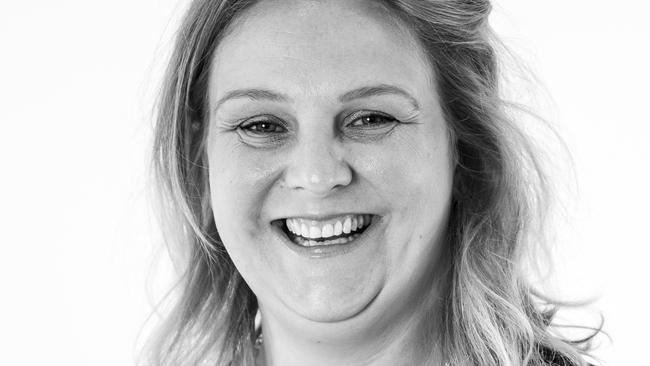Reason Aussies are quitting their jobs in droves
Melbourne woman Ellie Pietsch was living many people’s dream, but she quit her high-paid job for a surprising reason – and she’s not the only one.
At Work
Don't miss out on the headlines from At Work. Followed categories will be added to My News.
Melbourne woman Ellie Pietsch was living many people’s dream – working in a high profile job for one of Australia’s ‘Big 4’consultancies.
But despite her success, she was wracked by a feeling of “personal friction” that left her “frustrated” and wondering if her employer really valued her at all. And she wasn’t the only one who felt that way.
“It was whispered about in the corridors that everybody was feeling like this, but those who were getting ahead; those who were being rewarded, were the ones that were ignoring it, or saying that it wasn’t a problem,” Ms Pietsch told news.com.au.
“I knew I needed to find a place where I belonged. Because I spend so much time there. And I know that there are organisations who live by the values instead of just having them as things on the wall.”
So she quit, putting her money where her mouth is, and going to a company that aligned with her values, particularly around environmental and social issues.
She now works as a High Performance Facilitator at Leading Teams and has never been happier.
It’s a trend that is currently sweeping through Australian workforces, and could see tens of thousands of younger workers quitting their current jobs.


Gen Z and Millennials have had enough
HR coach and founder of Boldside Consulting Shelley Johnson confirms that Australian employees and jobseekers are searching for workplaces that share their values.
“Millennials and Gen Z employees want more than a job. They want a sense of purpose and meaning in their work,” she told news.com.au.
“Job seekers are no longer primarily motivated by the salary, perks or the career ladder. They want to contribute to something bigger than the company’s profit margin. They want to have a positive impact on the world.“

In January, new data from KPMG revealed that 46 per cent of UK adult workers and students wanted the company they work for to show a commitment to ESG (environmental, social and governance) considerations, and 20 per cent have even declined a job offer when the workplace’s ESG commitments did not align with their own values.
A cultural shift
It’s a cultural shift that has seen many companies changing the way they operate to attract the best talent.
Digital consulting company DB Results is one Aussie company that has announced it is officially B Corp certified, an achievement it specifically pursued to help it recruit top quality staff.
B Corp certification can be achieved when a company displays high standards of environmental and social impact, from giving back to the community, to internal practices and employee benefits.
DB Results CEO Gavin Bunshaw said attracting new talent who care about ESG commitments and “are driven to work for companies with a positive impact on the world” was a key factor in achieving the certification which has become “an important differentiator in the marketplace”.

And Ms Johnson can confirm that certifications like this won’t be lost to jobseekers, who are doing “as much research on the business as the business is doing on them”.
“Many candidates want to know about the company’s culture, leadership and climate commitment before taking the plunge into a new job,” she said.
She also said that jobseekers are “more aware of how the company values impact their job satisfaction and overall wellbeing”.
Melbourne-based Ms Pietsch moved to her current role at Leading Teams because being in a workplace that nurtured wellbeing and promoted positive conversations around ESG was of utmost importance. Now, she says she has great relationships and trust with her co-workers, and those who want to drive a positive impact “have a voice and an ability to talk about it”.
“Because I want to have an impact. I want to say something, I want to do something. So this organisation with trust and relationships lets me do that.”

In DB Results’ own internal culture, the accomplishment of becoming B Corp certified and affirming their commitment to ESG considerations has been felt “significantly,” says Mr Bunshaw.
“We have seen an increase in employee engagement, and it has created a sense of purpose and shared responsibility among our team,” he said.
“Our employees are proud to be part of a company that is committed to making a positive impact”.
Mr Bunshaw says that the path to becoming B Corp certified involved “rigorous B Corp bootcamps, pre-screening tests, questionnaires and the B Impact Assessment”.
However, the CEO says not much had to change internally.
“In other words, we walk the talk already.”
The company has four key areas that employees are assigned to, where they undertake activities to outwork each purpose: Health, Environment, Lifestyle and Poverty. The CEO says they have also been involved “in projects such as Lifeline, HandinHand, MiOK, Australian Prostate Center and Siriraj Hospital (Thailand).”
Ms Johnson is confident that other Australian companies are also ensuring their values are not just “platitudes and tokenism”.
The My Millenial Career author has seen companies run focus groups with employees to assess the pain points in their approach to ESG; set goals and action plans around diversity and inclusion, carbon emissions and employee wellbeing; and provide transparent reporting around ESG.

But for anyone like Ms Pietsch, who was unhappy in a role where her values felt compromised or unheard, Ms Johnson advises employees to “diagnose the problem.”
“Ask yourself questions like ‘what is my core concern at the moment?’ or ‘what parts of the culture am I finding challenging?’
“The next step is to be bold and have an open conversation with your manager about your concerns. Communicate what you’re finding challenging. Ask them what advice they would give you to help resolve the concern. Show them that you’re not just raising the problem but also keen to help solve it.”
Originally published as Reason Aussies are quitting their jobs in droves


